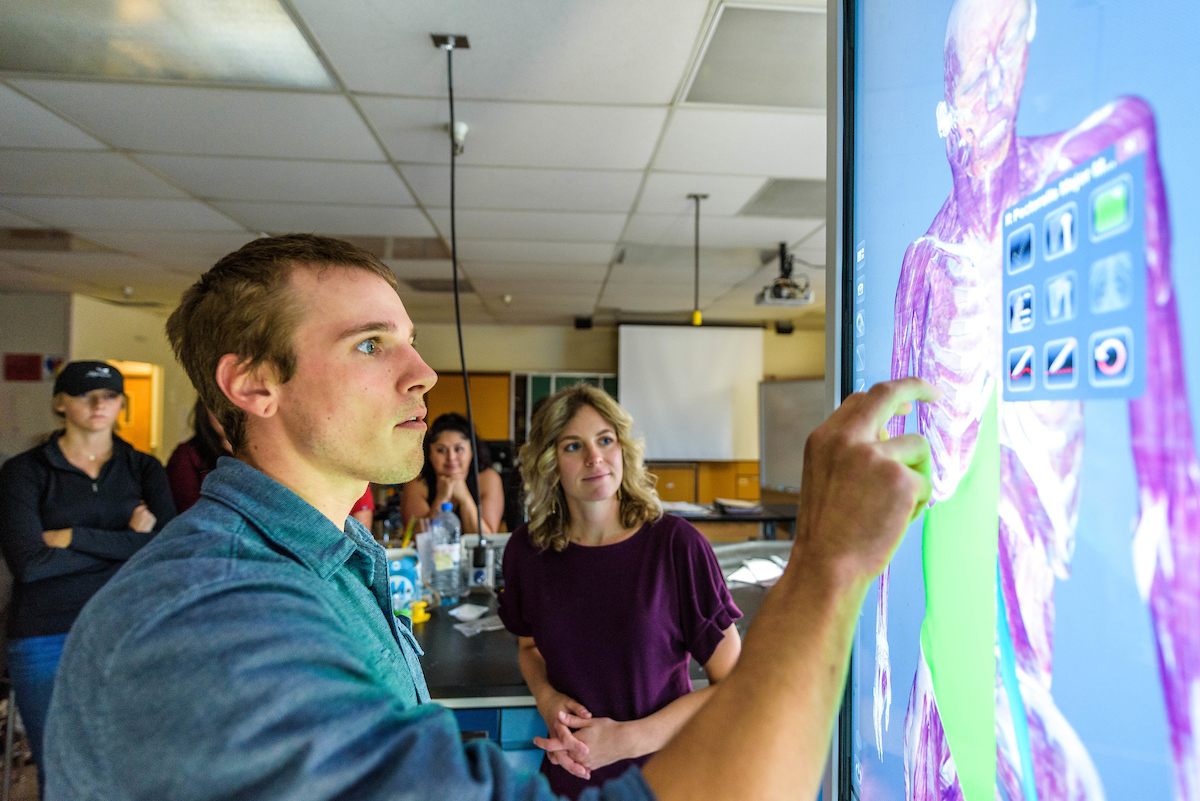
Lain Crawford works in a Human Anatomy and Physiology class on a new anatomage table, a type of virtual reality dissection tool, at Western Nevada College last fall in Carson City.
Just because you missed the start of the semester last month doesn't mean you can't take classes at Western Nevada College in the coming months.
Questions? Contact Us.
Information Desk
2201 West College Parkway, Carson City, NV 89703
info_desk@wnc.edu
775-445-3000
Conveniency is the common denominator because classes can be taken online in many cases and at a pace that will accommodate an individual's busy work and family schedule.
The wide range of late-start offerings include biology, chemistry, auto mechanics, construction, political science, deaf studies, drafting, health care, advanced manufacturing and computer information technology classes.